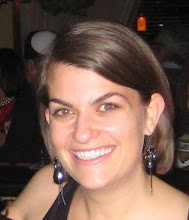I left school today feeling pumped. Started the day off with Tractate Gittin, a tractate that deals with issues of divorce within Jewish law. But what is interesting is that in Chapter five the final 2 Mishnas discuss issues of Darcei Shalom, Ways of Peace. We discussed how different social laws were constructed and how they were done so for the sake of Darcei Shalom. Among them, establishing the rule that when we read the Torah there should be a set order for getting an Aliyah, or coming to read. First the Cohen, then Levi, and then any Israelite. Why was it necessary to create such laws? One can assume that such laws were created because there was not Peace and on the contrary there was much fighting going on. I won't get into all the different examples (They are Mishnas Chet and Tet for those of you who want to look it up) but what was interesting is how diverse they were and how it was necessary to create some sort of social status to remove infighting. One more example I will share is that of a wife of a scholar may lend instruments to a woman of the land who has transgressed the laws of the Shmitah year (sabbatical year- every 7 years- to restore a balance between the wealthy and poor as well as the earth) by retaining fruit she was supposed to give up to a communal pot. Although the scholarly wife may know that this other woman will use the tools to further the transgression, if asked she may lend them however she cannot partake in the act itself for the sake of Darcei Shalom. Could you imagine if this became a social standard of today?? Instead of Haredim throwing stones at cars and yelling SHABBOS!! to Chilonim on Shabbat, that if a Chiloni man was to ask a Haredi man for directions while in the front seat of his car the Haredi man will assist him?? Although we have not yet learned it we were told that this chapter is linked with a chapter on Tikun Olam (repairing the world). The interesting question is what are these two chapters: Darcei Shalom and Tikun Olam doing in the middle of a Tractate on divorce law??? Interesting indeed...
The school day ended with the concept of "Agreed Reality" and how we interpret text. Similar to a previous entry, my mind was expanded by this teacher named Daniel Roth. We continued to talk about the idea of Mediative Parshanut and study. That we as student should study the full spectrum of text and commentators. We do not have to pick a side like the Classic commentators do (i.e. Rashi, Ibn Ezra, Ramban, etc...). On the contrary, we should open our minds to the idea that multiple and contradictory truths can exist. When there are gaps that remain in a story, thats okay. When we try to fill them in we destroy the ambiguity (sp??) that exists for our minds to wonder. We should be promoting education towards complexity. For there are only 2 kinds of people who say that "x" Pashat (textual words of the Torah) is true: 1. Academics 2. Fundamentalists. If we remove the ambiguity we limit it. I asked him after class if this idea only relates to the Parshanut (the commentators) and the Rabbi's commentary. OR if it can also apply to the text itself. We got into this long conversation (that I look forward to continuing) and it ended with what I will coin as my big questions of the year: WHY MUST THE CONVERSATION END?? WHY ARE WE LIMITED TO THE THOUGHTS AND UNDERSTANDINGS OF A GENERATION NOT OUR OWNN? IS THERE ROOM FOR NEW UNDERSTANDING AND PRACTICE SET ON THE PRECEDENT OF THE PAST BUT APPLICABLE TO THE PRESENT??. I am sick of the answer because that is the way it was always done and we need to uphold it. Time, places, generations, community participants, global environment etc... is always changing and have always changed. So why aren't we?? There was no 'this was how it was done' since 'this' was evolving...
I capped off the day with a trip to the waffle bar with the roomates, Shesh Jabotinsky (i.e. Molly and Jessy ) and Eric. My maple nut butter waffle was AMAZING, but it's sugar high aftermath is why i am writing so much, so late. Lets hope one cup of coffee in the morning is enough...
Subscribe to:
Post Comments (Atom)

No comments:
Post a Comment